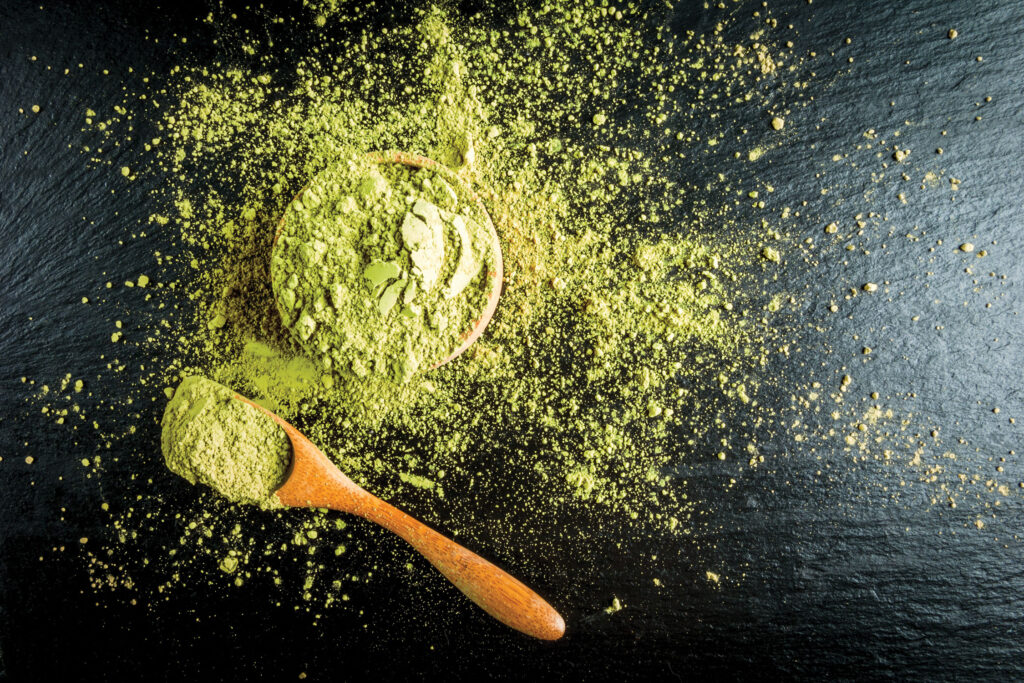Advertisement
Made with matcha
Reap the benefits—and crazy-rich color—of everyone’s favorite green tea by adding it to your next meal or treat.

With its eye-catching color and palate-arresting flavor, it’s no wonder matcha green tea powder has staying power on your Instagram feed. It’s the OG cup of green goodness—the forerunner of the celery juice craze of this spring.
But does matcha deserve a lasting place in your real life?
Sure does. Matcha is special. It differs from other green teas you may be familiar with. For starters, green tea plants for matcha are shaded for several weeks before harvest. When it’s time to grind the tea, the leaves’ stems and veins are removed. This results in a fine powder that is dissolved in a liquid rather than being steeped. By consuming the whole leaf powder, you’re getting a more concentrated dose of its nutrients—including loads of antioxidants. (You’re also getting more caffeine, FYI.)
So yes, you should probably drink matcha. And you should eat it too.
Matcha Soba Salad
Matcha Swirl Banana Muffins
Matcha Pistachio Cake
Making the grade
Not all matcha is created equal; it comes in different grades to be used for different purposes. Understanding what each is best suited for will help when faced with a wall of choice at the supermarket. Take note that the price of one matcha compared to another has no bearing on its health benefits. It simply reflects the grade of matcha and the care taken during its production.
Ceremonial-grade matcha
This matcha is grown expressly for the purpose of drinking simply, without the addition of sweeteners or other ingredients. Made from the youngest tea leaves, this matcha has a very fine texture and a delicate and nuanced flavor that would be lost if added to smoothies or baking.
Premium-grade matcha
Not as refined in taste as the ceremonial grade, premium-grade matcha is a good all-around matcha if you’re looking to both drink and cook with it.
Culinary-grade matcha
This grade of matcha is made with the less delicate, more mature leaves of the tea plant and is not quite as finely ground as the other types. It has a slightly more bitter flavor that combines well with other foods and is perfect for experimenting with in the kitchen.








